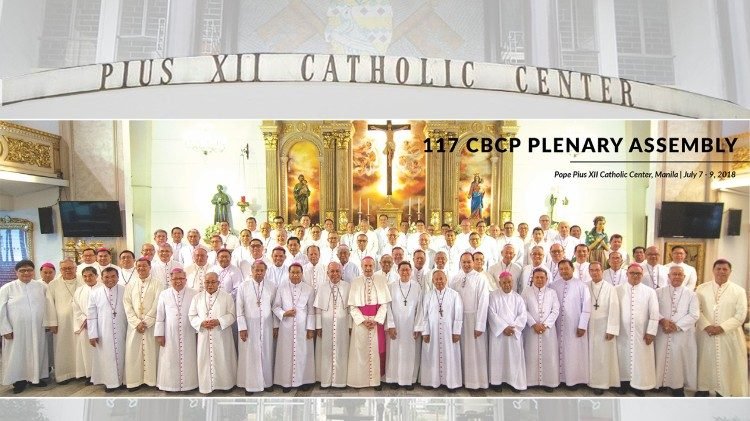The Philippines is Asia’s largest Catholic nation where the Church is very vocal regarding issues related to faith, morals and social justice. But it often happens that the bishops of the country are accused of meddling in politics.
Pastoral exhortation
The bishops refuted this allegation in a pastoral exhortation released on July 9. Speaking about the country’s “troubled times” and “times of darkness”, the exhortation entitled, “Rejoice and be Glad!”, raised issues such as killings, poverty, social injustice and marginalization, and urged Catholics to commit themselves to peacemaking. The bishops refuted the allegation “they were involved in political moves to destabilize the government”.
Bishop Mylo Hubert Vergara of Pasig, the chairman of the Commission for Communications of the Catholic Bishop’s Conference of the Philippines (CBCP), was among those who presented the pastoral exhortation on July 9. We called him on the phone in Manila and asked him about church-state separation in the Philippines and their involvement in politics.
Church-state separation
Bishop Vergara said the Church was engaged in “critical collaboration” with the state, the local government and non-governmental organizations (NGOs) for the common good. In this perspective, he said, the Church speaks out when basic human rights, such as the right to life, are violated. With regard to social injustice, drug killing and extra-judicial killings, including of priests, Bishop Vergara said the bishops ask the government to cooperate to help address and resolve the issues.
No politics
Bishop Vergara said the bishop don’t meddle in politics, but speak out when the common good is threatened. He said the Church values human life and asks that the basic necessities of life are guaranteed to persons and families. He denied the bishops in the Philippines are involved in politics, but speak out in support of social justice which is the teaching of the Church.
In fact, in the pastoral exhortation, the bishops said, “When we speak out on certain issues, it is always from the perspective of faith and morals, especially the principles of social justice, never with any political or ideological agenda in mind.”



